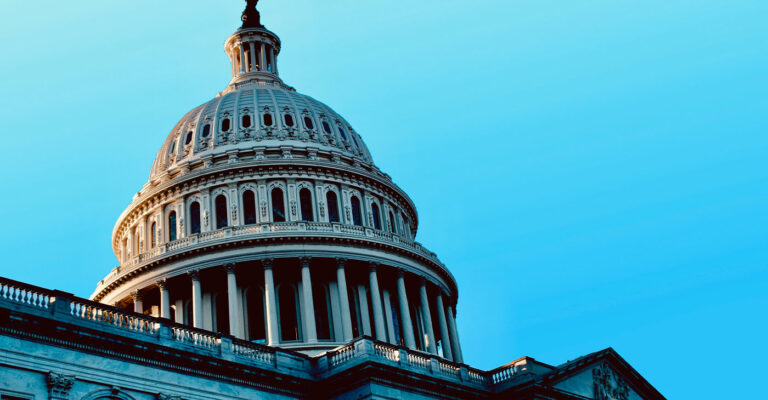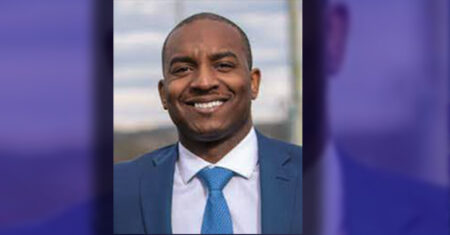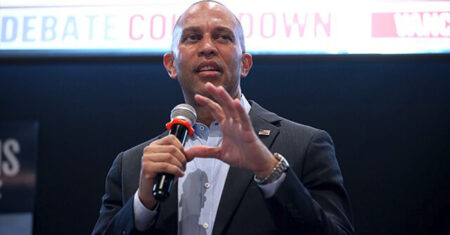By: Justin Nalley, Former Senior Workforce Policy Analyst and Policy Carlton Langford, Special Assistant at the Joint Center for Political and Economic Studies
Last month, Senator Tammy Duckworth and Representative Katherine Clark reintroduced the Child Care Access Means Parents in Schools (CCAMPIS) Reauthorization Act to keep the program running through 2031 and increase its funding to $500 million annually. CCAMPIS is designed to help low-income student parents cover the cost of childcare. It can fund on-campus or community care, after-school programs, and even financial counseling for students who are parenting while in college, just like we did. For Black student parents, higher education can feel like an obstacle course. The soaring cost of childcare, inflexible class schedules, and limited campus support make staying enrolled a daily battle. It’s not just about managing responsibilities — it’s about doing so with minimal institutional support and even less societal recognition. When other students are enjoying campus activities, many skip out.
Every fall, Historically Black Colleges and Universities (HBCUs) campuses come alive during homecoming, pulsing with joy, legacy, and the celebration of Black excellence. In 2005, while our peers were reveling in the festivities, one of us was quietly holding his newborn son at the hospital for the very first time. During homecoming season two years later, the other could only take a single day of unpaid sick leave from his mailroom job before returning to work just three hours after his daughter was born. Our challenges mirror those faced by the 21 percent of Black male students who are fathers while in college. Like us, many navigate the relentless grind of academics while raising children. We each completed our bachelor’s degrees, but 72 percent of Black male students who are fathers leave college without completing their degree or certificate.
The numbers tell a sobering story. Access to on-campus childcare has declined over the years. Between 2004 and 2019, the percentage of public academic institutions offering childcare services dropped from 59 percent to 45 percent, with more alarming data from HBCUs. Only 21 percent of HBCUs provide on-campus childcare, compared to 38 percent of public two-year institutions. This gap disproportionately affects Black student parents — 67 percent of Black fathers attend colleges that don’t offer on-campus childcare. For us, this meant paying for childcare out-of-pocket and using our support networks of family, friends, and even classmates when necessary. Sometimes, our children joined us in lectures, sitting quietly at our sides as we tried not to disrupt the class flow. It was a constant juggling act that required immense effort and support, which many Black student parents do not have. There is a solution — and it already exists.
However, despite its potential, CCAMPIS often falls short for Black student parents. Research from the Joint Center for Political and Economic Studies reveals a troubling gap: while 13 percent of community colleges have at least 40 percent Black enrollment, only six percent of CCAMPIS grants go to community colleges with substantial Black student populations. To change this, we need to protect and reauthorize CCAMPIS to ensure it continues serving low-income student parents. In tandem, we must mandate accurate, detailed data collection on student parents so resources can be directed where they’re needed most. Without robust, disaggregated data on student parents — especially by race and gender — policymakers can’t see the full scope of the challenge. And what remains invisible remains unaddressed. The program needs more funding so more colleges — especially those serving large numbers of Black students — can offer affordable childcare. Finally, we should audit and revise program access to ensure equity is not just an aspiration but a measurable outcome. We were both fortunate that our network of co-parents, family, and friends helped us make it through college. Not everyone has a safety net. Seventy-eight percent of Black student parents receive no family financial support for college, making affordable childcare a necessity to level the playing field.
With the federal government shutdown, CCAMPIS funding remains in limbo. Although financial aid programs like the FAFSA application, Pell Grants, and student loans are expected to continue, the shutdown introduces more uncertainty for programs like CCAMPIS, which was already on the chopping block. The CCAMPIS Reauthorization Act would keep the CCAMPIS program running through 2031 at $500 million per year and help connect parenting students to benefit assistance for food, housing, and health care. The stakes are too high for inaction or stagnation. When we support Black student parents, we do more than help individuals — we strengthen families, uplift communities, and invest in the future of Black excellence. It’s time to ensure that parents have the support to raise their children while pursuing their educational goals.







